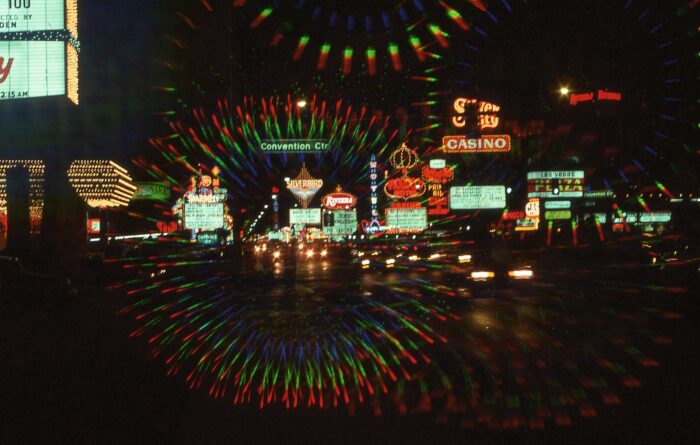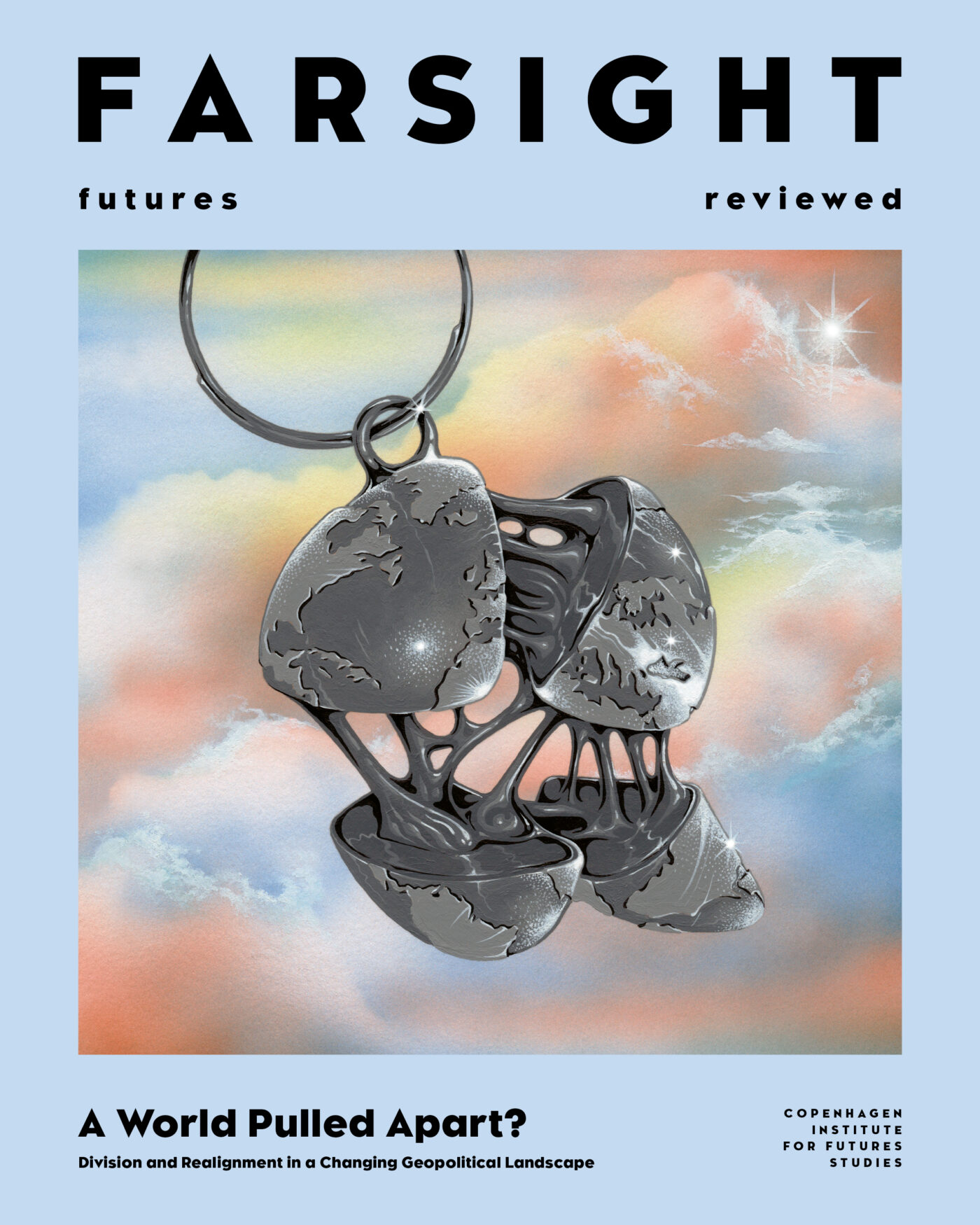
In turn, we use cookies to measure and obtain statistical data about the navigation of the users. You can configure and accept the use of the cookies, and modify your consent options, at any time.

Does History Repeat Itself?
Cyclical theories of the past rest on questionable
assumptions, but can they still help us
understand our future?
In the 1990s two scholars proposed that the broad strokes of Western history can be understood as a series of cycles switching between states of stability and turmoil and spanning roughly 80 years each. According to their theory, we may be heading towards the end of one cycle and the beginning of a new one – meaning that we will enter a period of crisis and global re-ordering. The ‘Fourth Turning’ theory of history rests on a series of shaky assumptions, but is there some truth to it?
‘History repeats itself’ is a phrase often used. But does it really? Looking at today’s world through a lens of historic cyclicality, it is easy to find evidence supporting the claim. As we watch current events unfold, including the rise of polarisation within and between countries, a paralysis of multilateral organisations, and growing nationalism across the Western world, it is hard not to feel that the project of peace and unity started amid the smoke and ashes of two world wars is heading for a reversal.
Although some claim that this project was always an illusion, a case can be made that the institutions and alliances forged in the post-WWII era ensured that things remained relatively delicately balanced. Our wealth grew – globally, that is – and more and more countries were invited into the political and economic unions which used to be exclusive clubs.
Events of the 21st century, however, including the outbreak of the Iraq war in 2003 and the war in Ukraine in 2022, have seriously challenged the ideal of multilateral cooperation as being the way to settle disputes in a peaceful manner – and the credibility of the UN as the forum through which to do so has been directly challenged by two of its founding members. The current status quo is also being challenged on a grander level by the entry of China onto the world stage, resulting in a new global balance of power.
In addition to these upsets, we have also begun to see younger generations challenging the actions and values of previous ones in a way perhaps not seen before, by accusing their predecessors of having colonised their futures. Were there a thermometer of the world, one could easily argue that things are getting somewhat heated. Perhaps things are even beginning to resemble the dynamics of the early to mid-20th century, giving credence to the idea of historical cyclicality which posits that periods of stability are often followed by ones of turmoil and reordering. Is there something to this idea?
We are all children of our time. We take our experiences from childhood and youth with us into adulthood, and these experiences leave traces within us that shape our worries, values, actions, priorities, and how we approach the world.
According to Neil Howe and William Strauss, who developed the “Fourth Turning theory” some 25 years ago, this dynamic even plays out on a generational level. The theory posits that generational cohorts who experience the same early life experiences often go on to develop similar ‘generational personas’, which tend to repeat in intervals. The shared experiences of Gen X, Millennials or Gen Z, for instance, will go on to shape the behaviours and characteristics of these generations in a somewhat predictable manner – and thus also shape the outcome of history.
This predictability, Howe and Strauss argue, can be traced back through history, in which the four archetypes Prophet, Nomad, Hero, and Artist have taken turns to set the historical wheels in motion. Each archetype is distinct, the authors believe, in their attitudes towards things such as family, risk, culture and values, and civic engagement, and the rhythmic and cyclical rise to power of these generational personas helps explain the observed rise and fall of empires, dynasties, ideologies, and world orders. Each cycle of the four archetypes lasts around 80 years and can be divided into four stages: a crisis – a catalyst event that puts everything in motion; the awakening in which society questions the existing (weakening) institutions; an unravelling, which is a peak or climax that shakes and transforms society and institutions; and a high, that sees society and the economy revamped for a new reality.
Considering that we are currently living through what has been described as a ‘democratic recession’, with the liberal democratic world order forged almost 80 years ago coming under increased pressure, it is tempting to search for at least some cyclicality in the unfolding of events. If a new Fourth Turning will soon be upon us, we may be facing a decade painted with deep crises and fundamental challenges to our political systems and institutions. However, crisis can also bring with it positive change. Fourth Turnings, Howe and Strauss argue, bring violent turmoil but also great reforms: the fluidity that is created when everything is suddenly being challenged or uprooted allows for the creation of a new system that solves the issues which were compounded in the previous cycle, thereby creating the possibility for a new ‘golden age’, as the sequence starts over. Howe and Strauss suggest that we might look back at the 2008 Financial Crisis as the catalyst that ushered in a Crisis Era.
The main question when it comes to historical cyclicality is whether it suffers from a confirmation and selection bias. It is deeply ingrained in our ‘huntergatherer brain’ to distrust and avoid unpredictable conditions requiring more energy to monitor and process. This is partly why we tend to see patterns even when there may be none. It is not unthinkable that when experiencing radical change or uncertainty we try to find a logic to the madness to put our minds at ease, and that we consequently look for clues of historic cyclicality.
If we assume however, that generations do have distinct characteristics based on things such as defining events, cultural change, and technological advancement, then the question arises as to whether the time span that commonly define generations can remain fixed in a world that is constantly changing. In other words, will the concept of 20-year generational spans remain relevant in a future that is radically different from today?
Already today we see clear intra-generational discrepancies, especially when it comes to the pace of technological change and how it affects social life. Take, for instance, Generation Y, also known as the millennials. This generational cohort is made up of people born roughly between 1980 and 2000, which means that the oldest millennials experienced a world without the internet, and the youngest grew up with mobile phones, smartphones, and streaming as staple parts of their lives. With technology changing at an accelerated pace, people born just a handful of years apart grow up in vastly different worlds. Can we then really assume that the individuals who we lump together under one generational moniker share enough traits that they will feel the same – and thus act out their historical agency in a predictable way?
If we suspend our scepticism for a moment and suppose that the Fourth Turning theory – or other similar cyclical theories – are correct in assuming that generations can be identified as distinct from each other, and that these generations share common traits that follow the rhythms of shared experience, does this leave room for generational differences to become fragmented at more compressed intervals in the future, as the pace of change accelerates? Could we imagine that the full 80-year cycles envisioned by Strauss and Howe will be shortened, meaning that we will experience upheaval and societal crises more frequently? Such developments would certainly spur more overall national, political, and social instability (or variability at least) which would then make international cooperation and alliances less stable and less reliable, creating a positive feedback loop of crises and fragmentation.
Amid such volatility and compression, would we have less societal cohesion, or perhaps just more diversity – and would that necessarily be a bad thing? While it is often assumed that homogenous societies have less conflict, some studies challenge this claim, arguing instead that more heterogenous societies may in fact lead to a higher degree of tolerance, diversity of thought, and open politics. Heterogeneity means exposure to others who are different from yourself, which ultimately broadens your horizons and may in turn lead to more openness towards the international community, more collaboration, and less conflict. Ultimately, if the span of years that define a generation are indeed compressing, and if generations are the drivers of some cyclical spiral of events (a big if) then we are in for a proper ride on the carousel in the years to come.
Critics of cyclical thinking argue that in our pursuit of patterns, we are conveniently choosing to omit the evidence charged against such theories. One example could be that Western institutions – assumed to be falling victim to cyclicality soon – have been challenged for quite some time now. Take, for instance, the establishment of the Asian Infrastructure Investment Bank in 2016, which is the first institution of its kind without the US as a founding member, or Beijing’s introduction of new international courts to handle disputes under China’s Belt and Road Initiative. Over the past decades we have been witnessing a steady move towards a multipolar world order. And although this coming world order looks different from the past, it is hardly the abrupt upheaval we would expect from the view of cyclical history. Many of the economic and political dynamics underpinning and pushing the changes forward have been underway or in development for decades and do not necessarily fit the pattern of the various cyclical ‘turns’ of history. One more aspect that makes the current era of turbulence different from those of the past is the role of real-time information dissemination. Given the state of current information and telecommunications technologies, it is difficult to imagine a drastic shift in one part of the world occurring without it being transmitted globally, making it harder to imagine tectonic changes happening in isolation – in the Western world alone for instance.
Ultimately, although we may not lean fully into the pre-determined cyclicality of events, nor into the previously accepted definition of generations, one thing seems certain: change is taking place faster than ever before. The rules of engagement created for a world in which people didn’t even have stationary phones or TV sets in their own homes are likely to be challenged, revised, or replaced. If the current institutions are to survive the change and still exist to see their centennial, they will have to be willing to be partly dismantled and to adapt – or else the world will move past them, and not look back.

This is a featured article from our latest issue of FARSIGHT: A World Pulled Apart?